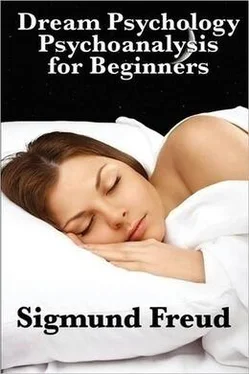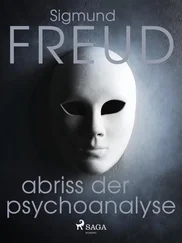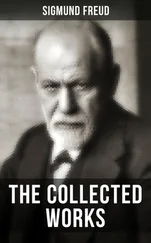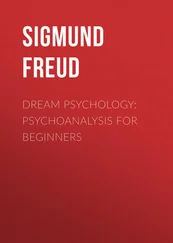We are now in the best position to complete our psychological construction, which has been interrupted by the introduction of the two systems, Unc. and Forec. We have still, however, ample reason for giving further consideration to the wish as the sole psychic motive power in the dream. We have explained that the reason why the dream is in every case a wish realization is because it is a product of the Unc., which knows no other aim in its activity but the fulfillment of wishes, and which has no other forces at its disposal but wish–feelings. If we avail ourselves for a moment longer of the right to elaborate from the dream interpretation such far–reaching psychological speculations, we are in duty bound to demonstrate that we are thereby bringing the dream into a relationship which may also comprise other psychic structures. If there exists a system of the Unc.—or something sufficiently analogous to it for the purpose of our discussion—the dream cannot be its sole manifestation; every dream may be a wish–fulfillment, but there must be other forms of abnormal wish–fulfillment beside this of dreams. Indeed, the theory of all psychoneurotic symptoms culminates in the proposition that they too must be taken as wish–fulfillments of the unconscious . Our explanation makes the dream only the first member of a group most important for the psychiatrist, an understanding of which means the solution of the purely psychological part of the psychiatric problem. But other members of this group of wish–fulfillments, e.g. , the hysterical symptoms, evince one essential quality which I have so far failed to find in the dream. Thus, from the investigations frequently referred to in this treatise, I know that the formation of an hysterical symptom necessitates the combination of both streams of our psychic life. The symptom is not merely the expression of a realized unconscious wish, but it must be joined by another wish from the foreconscious which is fulfilled by the same symptom; so that the symptom is at least doubly determined, once by each one of the conflicting systems. Just as in the dream, there is no limit to further over–determination. The determination not derived from the Unc. is, as far as I can see, invariably a stream of thought in reaction against the unconscious wish, e.g. , a self–punishment. Hence I may say, in general, that an hysterical symptom originates only where two contrasting wish–fulfillments, having their source in different psychic systems, are able to combine in one expression . (Compare my latest formulation of the origin of the hysterical symptoms in a treatise published by the Zeitschrift für Sexualwissenschaft , by Hirschfeld and others, 1908). Examples on this point would prove of little value, as nothing but a complete unveiling of the complication in question would carry conviction. I therefore content myself with the mere assertion, and will cite an example, not for conviction but for explication. The hysterical vomiting of a female patient proved, on the one hand, to be the realization of an unconscious fancy from the time of puberty, that she might be continuously pregnant and have a multitude of children, and this was subsequently united with the wish that she might have them from as many men as possible. Against this immoderate wish there arose a powerful defensive impulse. But as the vomiting might spoil the patient's figure and beauty, so that she would not find favor in the eyes of mankind, the symptom was therefore in keeping with her punitive trend of thought, and, being thus admissible from both sides, it was allowed to become a reality. This is the same manner of consenting to a wish–fulfillment which the queen of the Parthians chose for the triumvir Crassus. Believing that he had undertaken the campaign out of greed for gold, she caused molten gold to be poured into the throat of the corpse. "Now hast thou what thou hast longed for." As yet we know of the dream only that it expresses a wish–fulfillment of the unconscious; and apparently the dominating foreconscious permits this only after it has subjected the wish to some distortions. We are really in no position to demonstrate regularly a stream of thought antagonistic to the dream–wish which is realized in the dream as in its counterpart. Only now and then have we found in the dream traces of reaction formations, as, for instance, the tenderness toward friend R. in the "uncle dream." But the contribution from the foreconscious, which is missing here, may be found in another place. While the dominating system has withdrawn on the wish to sleep, the dream may bring to expression with manifold distortions a wish from the Unc., and realize this wish by producing the necessary changes of energy in the psychic apparatus, and may finally retain it through the entire duration of sleep. [22] This idea has been borrowed from The Theory of Sleep by Liébault, who revived hypnotic investigation in our days. ( Du Sommeil provoqué , etc.; Paris, 1889.)
This persistent wish to sleep on the part of the foreconscious in general facilitates the formation of the dream. Let us refer to the dream of the father who, by the gleam of light from the death chamber, was brought to the conclusion that the body has been set on fire. We have shown that one of the psychic forces decisive in causing the father to form this conclusion, instead of being awakened by the gleam of light, was the wish to prolong the life of the child seen in the dream by one moment. Other wishes proceeding from the repression probably escape us, because we are unable to analyze this dream. But as a second motive power of the dream we may mention the father's desire to sleep, for, like the life of the child, the sleep of the father is prolonged for a moment by the dream. The underlying motive is: "Let the dream go on, otherwise I must wake up." As in this dream so also in all other dreams, the wish to sleep lends its support to the unconscious wish. We reported dreams which were apparently dreams of convenience. But, properly speaking, all dreams may claim this designation. The efficacy of the wish to continue to sleep is the most easily recognized in the waking dreams, which so transform the objective sensory stimulus as to render it compatible with the continuance of sleep; they interweave this stimulus with the dream in order to rob it of any claims it might make as a warning to the outer world. But this wish to continue to sleep must also participate in the formation of all other dreams which may disturb the sleeping state from within only. "Now, then, sleep on; why, it's but a dream"; this is in many cases the suggestion of the Forec. to consciousness when the dream goes too far; and this also describes in a general way the attitude of our dominating psychic activity toward dreaming, though the thought remains tacit. I must draw the conclusion that throughout our entire sleeping state we are just as certain that we are dreaming as we are certain that we are sleeping . We are compelled to disregard the objection urged against this conclusion that our consciousness is never directed to a knowledge of the former, and that it is directed to a knowledge of the latter only on special occasions when the censor is unexpectedly surprised. Against this objection we may say that there are persons who are entirely conscious of their sleeping and dreaming, and who are apparently endowed with the conscious faculty of guiding their dream life. Such a dreamer, when dissatisfied with the course taken by the dream, breaks it off without awakening, and begins it anew in order to continue it with a different turn, like the popular author who, on request, gives a happier ending to his play. Or, at another time, if placed by the dream in a sexually exciting situation, he thinks in his sleep: "I do not care to continue this dream and exhaust myself by a pollution; I prefer to defer it in favor of a real situation."
Читать дальше












